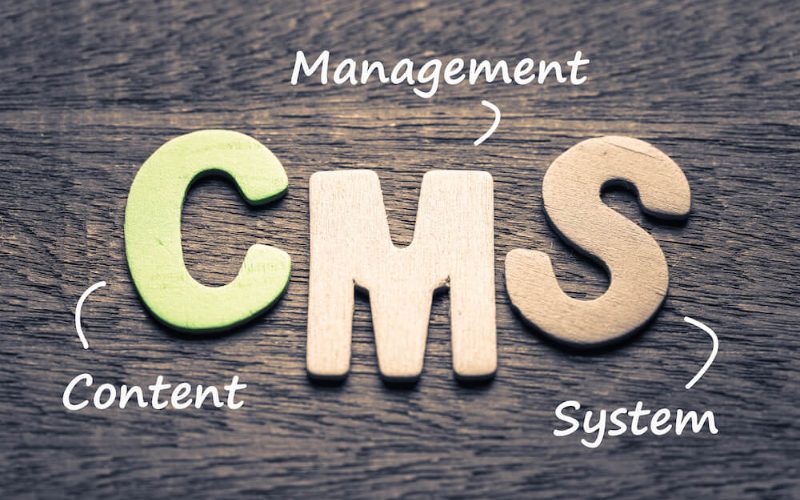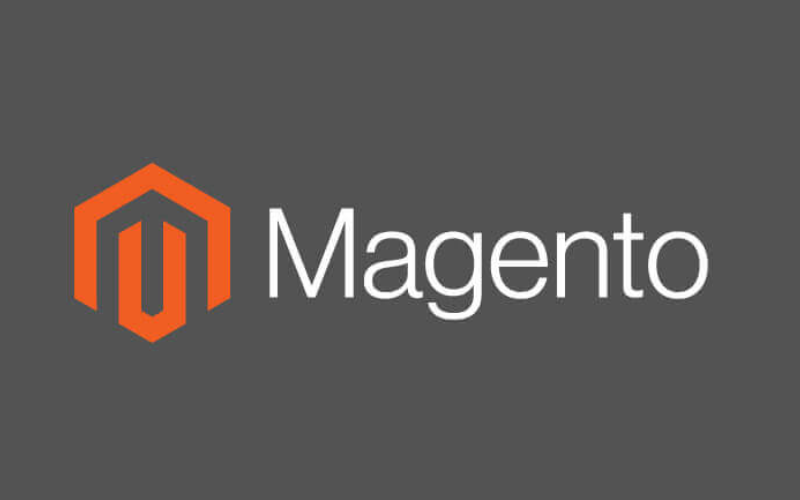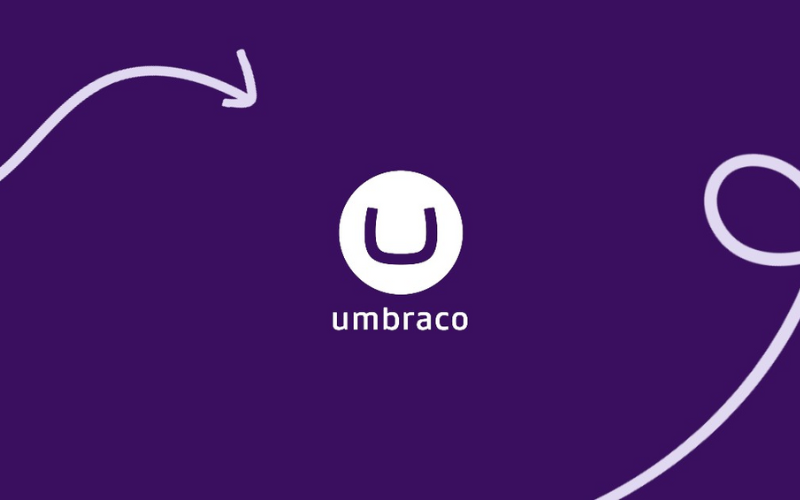A content management system
(CMS) has been devised to simplify the process of generating, revising, and
disseminating information from a collective of writers. The CMS typically
archives data in a database and showcases it through templates in a presentation
layer.
At present, more than 64
million active websites make use of a content management system. By using a
CMS, users can design websites and handle their content without having to write
website elements from scratch.

Nonetheless, selecting an unsuitable
CMS platform will only complicate the process. This article will introduce 10
of the best CMS platforms, their characteristics, and advantages to aid you in
identifying the most appropriate CMS for your website for business.
Top
CMS platforms to start a website in 2023
The creation of web pages
involves the utilization of programming languages like HTML, JavaScript, and
CSS.
However, building a website
from scratch, without the aid of a CMS platform, necessitates the acquisition
of knowledge in these languages, as well as the composition of a substantial
amount of code.
Fortunately, CMS platforms
provide a solution to this issue by enabling website development without the
need for coding or programming expertise.
Below are the top 12 CMS
options, each offering its own set of features and benefits.
1.WordPress
WordPress is among the best
CMS platforms which is utilized for constructing, modifying, and managing
websites. It is also the most favored content management system available.
Nearly half of all websites
on the internet are developed using WordPress. WordPress is a flexible website
platform that empowers users to create various types of websites. You can
initiate a blog, upload a portfolio, publish video tutorials, or establish a
business website.
It is perfect for novices
and more straightforward than creating a website from scratch. There are
numerous online courses and resources to acquire WordPress skills, and an
active community.
You don't need any
specialized expertise or programming proficiency. The block editor of WordPress
simplifies the process of designing visually appealing pages for your website.
In addition, by providing
your content in XML format, WordPress enables you to effortlessly switch to a
different platform in the future, if you decide to do so.
The WordPress platform is
available for free. Nevertheless, you will require a domain name and a hosting
service with a provider that can support WordPress.
🔘 Read More: Web development services outsourcing: all you need to know
2.Drupal
Drupal is one of the top CMS
platforms that is available as open source. It powers some of the most
important websites such as The Economist's website and multiple university
websites.
Drupal is an excellent
option for developers or individuals who can afford to hire a developer. It is
particularly useful if you are looking to create a website that is highly
customized and can handle a large amount of data.
This platform has been
designed for expert web developers and its adaptable API architecture supports
various digital platforms.
Adding content on Drupal is
a hassle-free task. The adaptable custom content types provide a plethora of
choices. Various modules are present that can be incorporated into your
website, similar to WordPress plugins.
Community support options
are accessible for assistance, just like Joomla and WordPress. In addition,
managing users is a breeze with the integrated system that allows you to
generate new roles and define their authorizations.
3.Magento
Magento is amongst the
finest e-commerce platforms available in the market. The content management
system software concentrates on enhancing the security, search engine
optimization, and personalization of all sorts of e-commerce websites.

As it is designed for larger
online stores, the platform possesses immense capabilities to showcase a vast
array of products and manage orders efficiently.
Magento is one of the top
CMS platforms which is well-suited to medium to large-scale e-commerce stores.
A prime instance of a large-scale website for business leveraging Magento is
Olympus, which specializes in selling cameras, binoculars, and audio equipment.
Magento is incredibly
adaptable, offering a plethora of external plugins that can be utilized to
augment its functionality.
Furthermore, it provides
various built-in options such as PayPal, cash on delivery, as well as bank
transfer, and allows for the integration of numerous payment gateways.
4.Joomla
As one of the best CMS
platforms, Joomla is a free and open-source content management system that
empowers more than 2% of all websites.
In comparison to other CMS
platforms, its core software provides immediate access to more features, such
as its multilingual capabilities. Nevertheless, setting up Joomla can be
difficult for users who lack technical expertise.
Since its initial release in
2005, Joomla, like WordPress, has been around for years. Joomla is full of
features, and many web hosting providers provide a one-click installation
option.
Joomla is ideal for
professional websites that are managed by multiple individuals. Consider the
official website of international tennis player Roger Federer, which not only
showcases his portfolio but also includes a news section and an online store.
Joomla offers a lot of
flexibility and a plethora of options. It is a great option if you are creating
something complex or customized.
5.PrestaShop
Introduced in 2007 in France
as a scholarly venture, PrestaShop has made significant strides to gain its
well-deserved position as one of the most used e-commerce platforms worldwide.
Presently, there are 270,000
online stores operating on PrestaShop, including French McDonald's, Salling.dk,
and other renowned brand websites.
Additionally, the number of individuals
who are part of its open-source community worldwide has reached an impressive
figure of over 1,000,000.
PrestaShop is a well-liked
CMS platform that caters to small and medium-sized e-commerce businesses. Its
thriving community and extensive range of functionalities make it an incredibly
adaptable online store management solution.
Additionally, its
all-inclusive interface enables simple product entry and monitoring.
As an illustration, Harry
Fay, a specialized jewelry retailer in the UK, retails an assortment of rings
and wedding bands on this platform.
🔘 Read More: Designing User Interfaces in 2023: 17 Trends to Watch
6.ContentfulDifferent from conventional
content management systems, Contentful's content is not tied to any specific
webpage but is provided through an API. As a result, individuals with less
technical knowledge can find it more accessible.
Opt for Contentful if you aim
to create a distinctive website for business that integrates with your other
digital assets.
The Scandinavian Airlines
System's website is an excellent example of this. Visitors can do everything
from getting the SAS app to reserving flights and checking in.
This platform is capable of
functioning seamlessly across various digital platforms, ranging from web
browsers to mobile applications. It is also versatile in accommodating diverse
forms of content.
7.Umbraco
Umbraco is among the top CMS
platforms that enables users to modify their website's content according to
their preferences.
The system is built using
Microsoft's ASP.NET framework, making it one of the most frequently used
systems.
With MVC and Web Forms
support, programmers can easily develop software in their desired language. The
system was also designed to assist web developers in creating websites that are
faster to load, more secure, and require less maintenance.

The Umbraco content
management system is appropriate for businesses that have diverse kinds of
content. As an illustration, the website of Johnnie Walker showcases
information about their merchandise, along with cooking instructions and
promotional clips.
The Umbraco content
management system is also used by companies such as BMW and Volvo.
8.Shopify
Due to its long-standing
presence in the industry, Shopify has emerged as a leading choice for
e-commerce content management systems. Countless individuals rely on Shopify to
facilitate their online operations on their website for business.
With exceptional
cross-platform compatibility, Shopify ensures a seamless purchasing experience
on all devices. While some may contend that NopCommerce development is the
superior option for e-commerce, it cannot be denied that Shopify websites are
equally impressive.
Renowned companies such as
Red Bull and many others trust Shopify, one of the best CMS platforms, for
their business needs.
The interface is
user-friendly and allows for easy dragging and dropping. It facilitates
in-store transactions, making it ideal for businesses that have both physical
and online stores.
Shopify Payments is a
built-in payment solution that enables you to accept credit and debit cards.
Additionally, Shopify offers
PayPal as one of its default payment providers. Shopify boasts a wide selection
of themes and extensions.
Third-party apps can also be
purchased to enhance the functionality of your online store.
9.Ghost
Ghost is a specialized CMS
platform intended for bloggers. It is commonly referred to as a " headless CMS,"
which may sound peculiar. However, this simply means that the CMS platform
doesn't impose any restrictions on how content is delivered.
Therefore, the content or
data you generate can be shown on a website, but it can also be transmitted to
a mobile app or any other platform. However, if you're not a programmer, or you
only intend to use Ghost for blogging, you need not worry about this.
Ghost has an excellent SEO
(search engine optimization) support system already integrated. You don't have
to add any plugins to achieve this.
Ghost is also well-suited
for monetizing content. So, if you want to establish an online magazine or
publication that people pay for, it can be easily done.
While the Ghost software
itself is free, you will have to pay for a domain name and web hosting. Unlike
larger CMS platforms, Ghost is not supported by many web hosts.
The Ghost Foundation is an
NGO that is not up for sale and relies on income generated from customer
subscriptions.
10.Webflow
Last on our list of top CMS
platforms is Webflow. Webflow and pre-made components are often utilized for
more intricate functionalities such as sliders, tabs, as well as background videos,
or you can import un-styled HTML elements for complete creative control.
In contrast to more advanced
content management system development platforms such as WordPress, Webflow's
editor is both user-friendly and visually appealing.
Adding new content is as
simple as typing in a text field. To preview the final output before
publishing, you can view updated content directly on the page.
Webflow's content management
system features a visible editor on the page. It is highly optimized for search
engines and can improve your website's performance.
Moreover, Webflow's CMS
enables you to create an SEO-friendly URL structure. Webflow can be fully
customized, and integrating CMS is an easy task for your web team. It has the
capability to expand in sync with your business's growth.
Conclusion
In the modern era of
technology, a digital platform is an essential component for any business to
thrive. A profitable website for business is necessary for companies to
showcase their offerings online.
Small businesses and
startups may desire to develop a new website, yet they may not wish to engage
in the complexities of coding. Even established organizations may want to
revamp their outdated websites.
In such circumstances, the
optimal solution that can save time and facilitate the launch of website is a
content management system (CMS), which aids businesses in constructing,
designing, and integrating projects into their website.
If you have trouble choosing
the best option among best CMS platforms, feel free to contact us and get the
help you need.